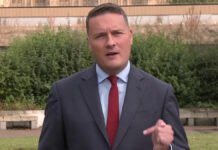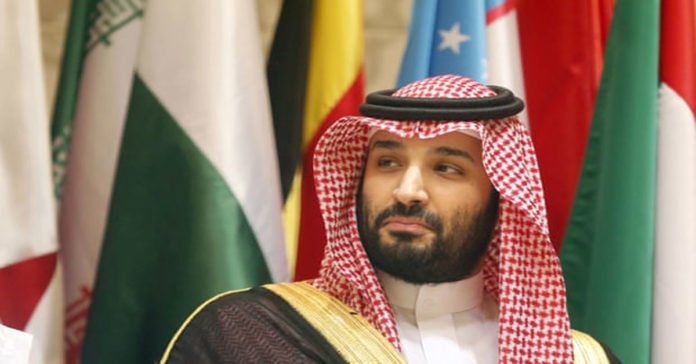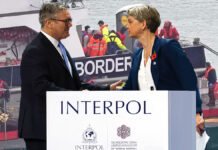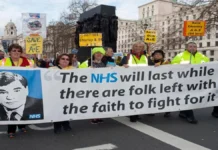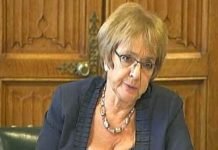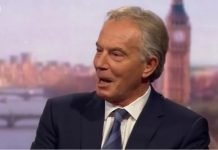Evidence suggests Saudi Arabia’s Crown Prince Mohamed bin Salman and other senior Saudi officials are liable for the murder of journalist Jamal Khashoggi, a U.N. rights investigator said on Wednesday.
There was no immediate reaction from Riyadh which was sent the 100-page report in advance – but the kingdom has regularly denied accusations that the prince was involved.
Agnes Callamard, the U.N. special rapporteur on extrajudicial executions, called for countries to widen sanctions to include the Crown Prince and his personal assets, until and unless he can prove he has no responsibility.
Khashoggi, a critic of the prince and a Washington Post columnist, was last seen at the Saudi consulate in Istanbul on Oct 2 where he was to receive papers ahead of his wedding.
His body was dismembered and removed from the building, the Saudi prosecutor has said, and his remains have not been found.
“It is the conclusion of the Special Rapporteur that Mr. Khashoggi has been the victim of a deliberate, premeditated execution, an extrajudicial killing for which the state of Saudi Arabia is responsible under international human rights law,” Callamard said in her report based on a six-month investigation.
Callamard went to Turkey earlier this year with a team of forensic and legal experts and said she received evidence from Turkish authorities.
“There is credible evidence, warranting further investigation of high-level Saudi officials’ individual liability, including the Crown Prince’s”, she said.
“Indeed, this human rights inquiry has shown that there is sufficient credible evidence regarding the responsibility of the Crown Prince demanding further investigation,” she added, urging U.N. Secretary-General to establish an international probe.
Using recordings of conversations from inside the Istanbul consulate where Khashoggi was killed, her report pieces together his last moments, and how he was confronted by a Saudi officials , one of whom said: “We are coming to get you.”
When Khashoggi refused to cooperate, a struggle can be heard, including heavy panting. The special rapporteur’s report concludes: “Assessments of the recordings by intelligence officers in Turkey and other countries suggest that Mr Khashoggi could have been injected with a sedative and then suffocated using a plastic bag.”
The findings will heap pressure on Crown Prince Mohammed bin Salman to explain what he knew about the murder of Khashoggi. The kingdom has previously described it as a rogue operation that the heir to the throne knew nothing about.
That is not the view of the special rapporteur’s report. Its main findings include:
- There is credible evidence, warranting further investigation, of high-level Saudi officials’ individual liability, including the crown prince’s.
- Khashoggi’s death was an extrajudicial killing. His attempted kidnapping would constitute a violation under international human rights law … and may constitute an act of torture under the terms of the convention against torture.
- The investigations conducted by Saudi Arabia and Turkey failed to meet international standards regarding the investigation into unlawful deaths.
- The Saudi investigation into the murder was not conducted in good faith, and might amount to obstructing justice.
- A demand that the trial of the 11 suspects in Saudi Arabia be suspended amid concerns about secrecy over the proceedings and lack of credibility.
- The killing of Khashoggi has highlighted the vulnerabilities of dissidents living abroad and the risks they are facing of covert actions by the authorities of their countries of origin or non-state actors associated to them.
The report states: “Some eight months after the execution of Mr Khashoggi, the determination and assignment of individual responsibilities remain clouded in secrecy and lack of due process.”
It adds: “To date the Saudi state has failed to offer public recognition of its responsibility for the killing of Mr Khashoggi, and it has failed to offer an apology to Mr Khashoggi’s family, friends and colleagues for his death and for the manner in which he was killed.
“The special rapporteur obtained information regarding a financial package offered to the children of Mr Jamal Khashoggi but it is questionable whether such package amounts to compensation under international human rights law.”
Khashoggi, 59, was killed when he entered the Saudi consulate in Istanbul on 2 October last year. One of the region’s most important journalistic voices, he considered journalism within, about and for the region to be vital, the special raporteur states.
This is a "Pay as You Feel" website Please help keep us Ad Free.
You can have access to all of our online work for free. However if you want to support what we do, you could make a small donation to help us keep writing. The choice is entirely yours.

